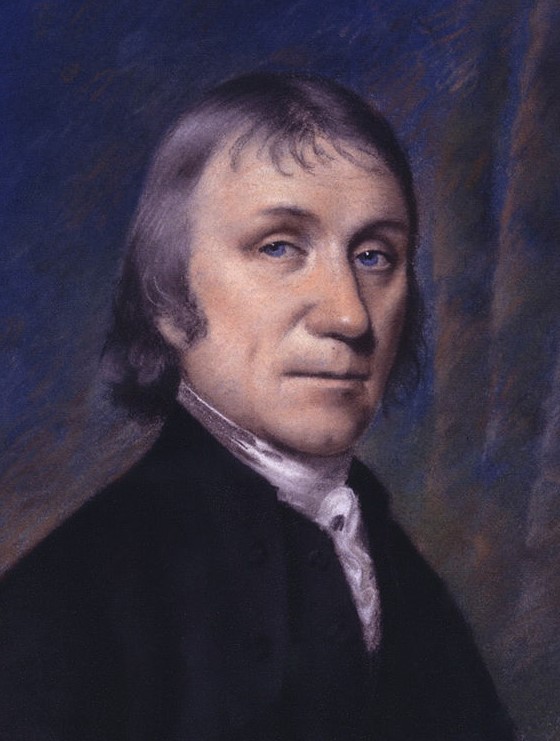To celebrate 350 years of scientific publishing, we are inviting our readers to tell us about their favourite papers from the Royal Society archive.

To celebrate 350 years of scientific publishing, we are inviting our readers to tell us about their favourite papers from the Royal Society archive. Today Mark Leake, Chair of Biological Physics and Director of the Biological Physical Sciences Institute at the University of York, tells us about his experience with Philosophical Transactions.
My personal highlight was the theme issue on 'Single molecule cellular biophysics' that I had the pleasure of guest-editing in 2013 for Philosophical Transactions B. The breadth of genuinely multi-disciplinary articles for that issue was enormous. To me it illustrated how, in some ways, we have come a full-circle since the forming of the Royal Society 350 years ago.

Joseph Priestley by Ellen Sharples (1794). Joseph Priestley FRS (1733 – 1804) was a famous polymath.
The Society then was composed of a Fellowship of enthusiastic natural philosophers who were, in every conceivable way, true polymaths. No artificial subject boundaries existed for them – they were driven by the pursuit of knowledge with the keenness to be endlessly curious; only trusting theories which account for natural phenomena through the rigours of empirical investigation.
Single-molecule biophysics applied to cell biology in our modern era has taken us back to this core strategy of using all the scientific tools and expertise at our disposal irrespective of flavour. It demands a truly integrative and interdisciplinary framework for research investigation, involving multiple physical and biological sciences as well as engineering, computation and mathematics to really get to the heart of why cells do what they do.
Mark Leake also wrote a review on the history of microscopy for our 350th anniversary celebrations.
